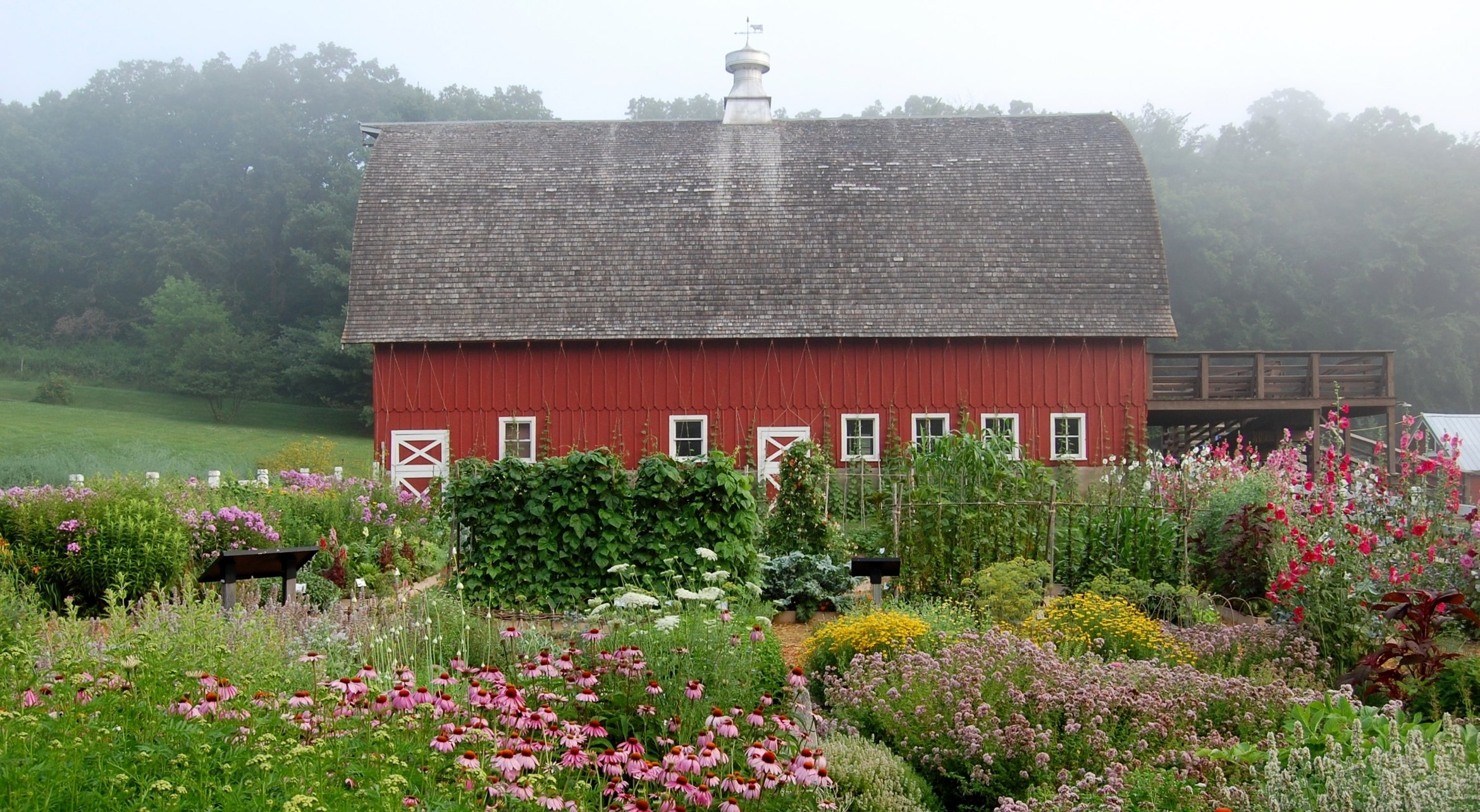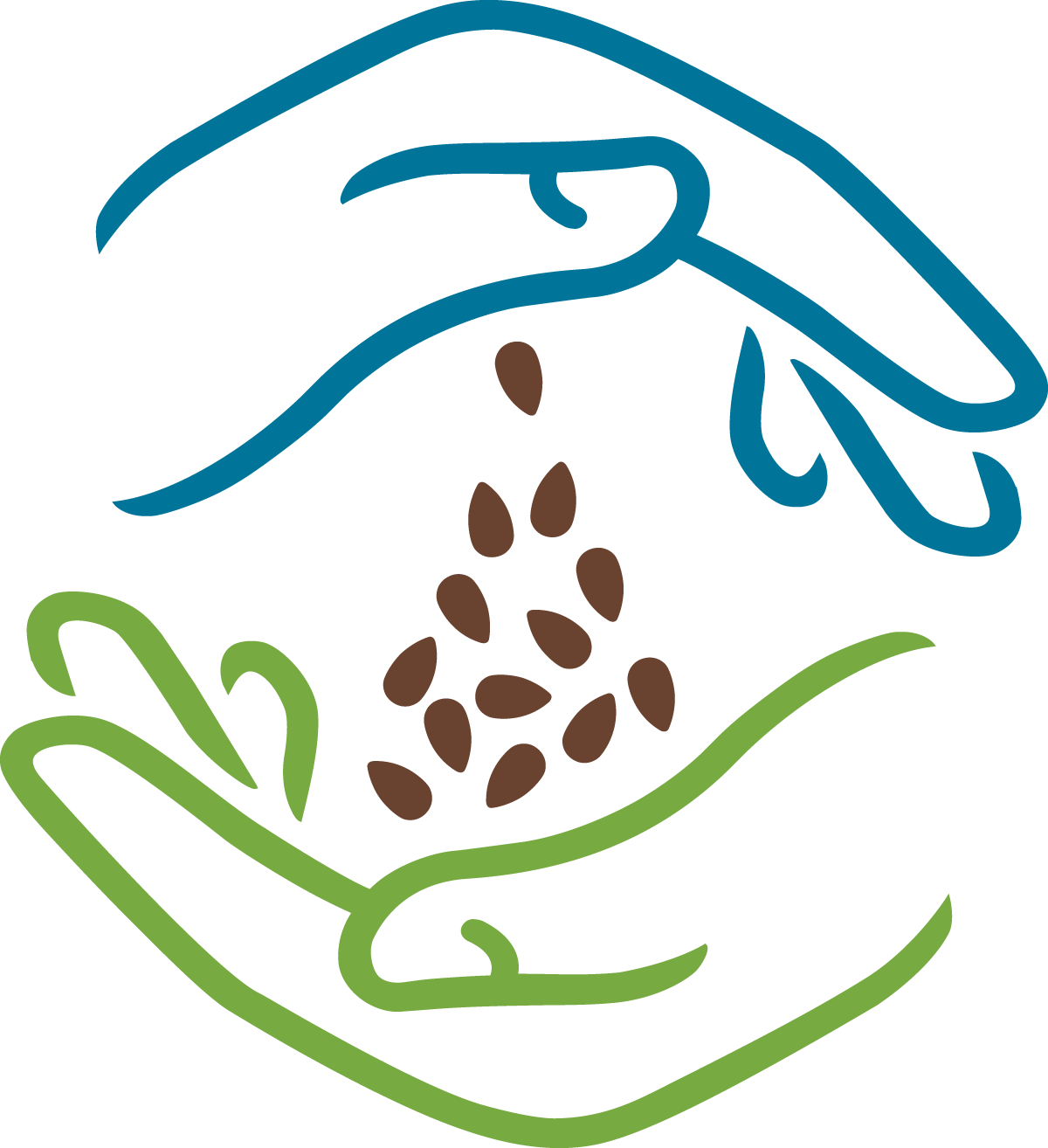Plant a seed. Grow a farmer.
/Farming has a certain romance about it.
When folks who are not acquainted with the farming lifestyle imagine it, they often picture a life full of fresh air, cuddly animals, delicious food, and the freedom of being one’s own boss. Luckily, these are part of the profession. But farming is also fraught with unpredictable weather, late-night calls to the veterinarian, crop failures, and the pressures of competing in an economy that heavily favors a large, industrial model.
Despite these challenges, the past several years have seen a renaissance in small-scale diversified farming.
This new surge of interest in farming is coming mainly from people who didn’t grow up on a farm or even in a rural area. They don’t have land to inherit. Knowledge of how to fix a tractor, hoe a row, or plant a seed was not passed down to them by their elders. How, then, are these folks to become farmers?
Hands-On Learning
While many aspiring farmers start by working on a farm and falling in love with the lifestyle, too often they leave that experience unsure of (and intimidated by!) how to get started farming for themselves. Farming is not the same as growing a garden…it’s a risky business that requires skill, land, and equipment. Where are they to begin?
One way for them to prepare is to participate in a training program that specifically teaches how to start and manage a small farm. The Organic Farm School (OFS) at Greenbank Farm is one of these programs nationwide. The OFS is a full-time, 7.5-month program located on scenic Whidbey Island in Washington state, where we teach and practice a triple bottom line approach to farming—a bottom line that cares for the land, the community it nourishes, and the economic security of the farmer.
Students learn all aspects of running a diversified organic farm—first through classroom studies and then most importantly by actually doing it. As they manage the student farm, they begin to truly understand all that goes into farming—from soil science, insect ecology, and tractor mechanics to farm record keeping, business planning, and direct marketing.
Where Seed Fits In
The OFS teaches that one of the most important paths to this triple bottom line is through fostering a healthy seed system. For something to be truly healthy it must also be resilient. Resiliency comes from the ability to not only survive challenges but to adapt and become better because of them. Resiliency equals staying power. We need our farms, our seed, and our seed supply to be resilient, and by training farmers to become seed stewards and seed suppliers, we help foster that resiliency.
Of course, growing seed is very different from growing vegetables, and growing organically adds another layer of complexity.
Growing an organic radish is an amazing thing—a sprint-to-the-finish exercise in alchemy. Put a seed in the ground, give it a little water, and 30 days later you have a tasty snack. Growing organic radish seed is a different beast entirely. Not only does it take much longer to go from seed to harvested crop—about 6 months here on Whidbey Island—there is a whole host of other considerations. Seed crops, as opposed to vegetable crops, have a different set of insect and disease pressures. The plants are often much larger than their vegetable counterparts, which means they need to be spaced differently in the field. They have different irrigation requirements. They often have to be trellised. Dry-seeded crops (of which radishes are one example) are a favorite snack of birds. As such, they may need to be covered with bird netting. And don’t forget that the bird netting and trellising will need to be taken down again prior to harvest. Keep in mind this is all just the growing of the crop! When harvest and seed processing are added to the mix, the prospects can be daunting.
Reliable access to diverse, regionally-adapted organic seed is key to the success of any farm business.
As all of us Seed Savers Exchange members know, it is an involved, intimate, magical journey from seed to plant to seed.
Having worked for years at Seed Savers Exchange, I know that SSE is always on the lookout for accomplished organic seed growers, and there are never enough of them. Here at the Organic Farm School we are training up a new cadre of organic seed growers who are capable and ready to meet this need. Our farm students come from all corners of the country, and to all corners of the country they return. I like to imagine them as the Johnny Appleseeds of the organic seed world, setting off on a journey to become seed stewards of their home regions.
The Organic Seed Project
From the far-flung corners of the country to our home here in the Pacific Northwest, we are dedicated to sharing seed production knowledge with established farmers as well as our farm students. To do that, we started the Organic Seed Project, a multifaceted project that aims, through education, equipment, and assistance to help western Washington organic farmers increase their knowledge of, and involvement with, organic seed production. With the seed industry dominated by global chemical companies, our organic farmers get the “short end of the stick.” We need to help them create and access seed that truly meets their needs.
Our goals for the project are to help our regional farmers become the driving force behind our regional seed system—from breeding and selection to production and marketing. In order to accomplish this, the Organic Seed Project has several components:
Dr. John Navazio, formerly of the Organic Seed Alliance, evaluates an escarole variety trial with participants of the 2014 Breeding Self-Pollinated Crops workshop at Greenbank Farm.
Seed Equipment Rental
Thanks to generous funding from Washington State Department of Agriculture’s Specialty Crop Block Grant Program and the Sustainable Path Foundation, we have assembled an assortment of seed threshing and cleaning equipment available for rent to regional seed producers at nominal fees.
Workshops and Events
We work closely with our friends at the Organic Seed Alliance to offer a series of educational and hands-on workshops and field days on topics associated with organic plant breeding and seed production.
Seed Growers Discussion Group
We launched an online discussion group so that regional seed growers can ask and answer each other’s questions while sharing resources and experiences concerning regional organic seed production. The group is open to anyone who wants to join, and the archives are publicly available. The group’s homepage can be found at : https://groups.electricembers.net/lists/info/nworganicseedgrowers
On-Farm Projects
Each year at the OFS we engage in a variety of seed activities including variety trials, breeding projects, and seed production. Some of the seed grown on our farm is grown on contract with seed distributors like Seed Savers Exchange, some is for our own on-farm use, and some is sold in packets at our farm stand and the local farmers market.
Farmer Trials
- Conducting on-farm variety trials is one of the best ways to determine which varieties will best meet your farm’s needs. Through funding supplied by WSDA’s Specialty Crop Block Grant Program, we are able to offer regional farmers technical and financial support to conduct their own on-farm variety trials.
There are many challenges facing our food and farming system today. Climate change, soil degradation, loss of seed diversity, aging farmers—unfortunately the list goes on. While sustainability can be difficult to define, the common thread running through all definitions is the focus on the future. Seed Savers Exchange embodies this focus by working to preserve the diversity of our garden heritage for generations to come. We at the Organic Farm School are proud of the role we play in that important work.
We’re producing a more diverse, resilient food system one new seed grower at a time.
Jessica Babcock is the Farm Manager & Lead Instructor at Greenbank Farm's Organic Farm School. After receiving a Master's degree in Sustainable Food & Farming from the University of Montana, she spent four years managing the trial gardens at Seed Savers Exchange.















